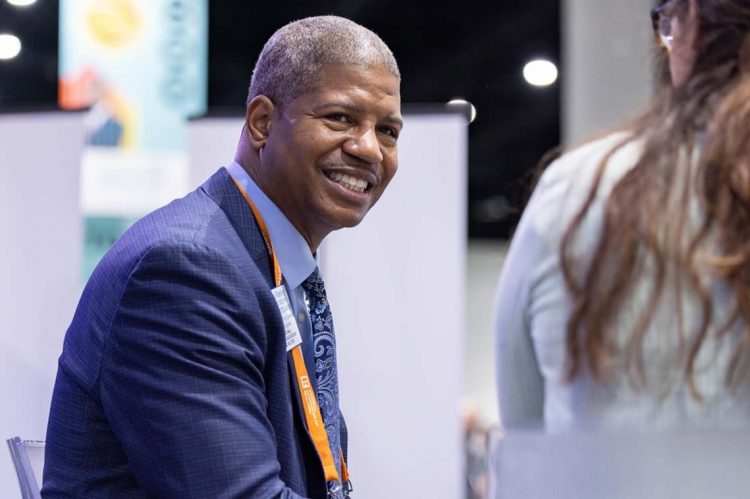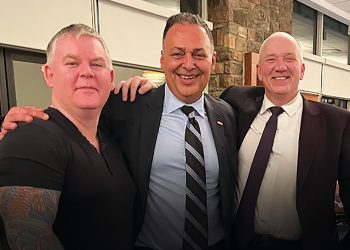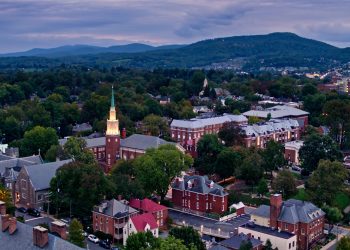Above: Asa Fleming. Photo by AJ Canaria of MoxiWorks
The term “affordable housing” often carries a negative connotation with it, one typically rooted in racist stereotypes. Changing that starts by changing consumers’ perspectives through education, says Asa Fleming, a REALTOR® with Allen Tate REALTORS® in North Carolina.
We sat down with Fleming back in November during the National Association of REALTORS® (NAR) 2021 Conference & Expo, where he discussed his position at the forefront of local advocacy pertaining to urban planning and infrastructure, and how he has made strides in pushing past these preconceived notions by simply educating his clients.
Here, Fleming shares his insights on the strategies brokers, agents and associations can implement to ensure equitable access to homeownership.
Liz Dominguez: How long have you worked within the real estate space?
Asa Fleming: I got into real estate in 1998 in Queens—then started selling property in Florida and decided I wanted to do it full time. Now I’m in Raleigh, North Carolina. I wanted to get into something where I could kind of “kill my own food.”
LD: You’ve put an emphasis on urban planning in your career, even speaking on the subject at this convention. Why do you feel it’s such an important cause to champion?
AF: I vice chair the planning board for my county. We have 12 municipalities and I always followed the notion that if you failed to plan, you plan to fail. Getting involved with urban planning is only making the communities more positive and prosperous. We want to give people a safe environment where they can live, work and play.
I love getting engaged with the process, using different land use initiatives and zoning codes to set the stage for what the community is going to look like 30, 40, 50 years out.
LD: What about accessibility? How does it play into the world of urban planning?
AF: I think of the rise of the 15-minute neighborhood. The whole idea is you want to be able to have access to all of your needed resources within a 15-minute walk. That’s a very lofty goal, and the harsh reality is that even the cities that are close to doing it now, the affordability has vanished. What will help is to try to use that sort of initiative to attract people who understand that, yeah, you might have to live next to a grocery store or you may have to take public transportation in order for it to be efficient.
LD: We hear more and more that climate change is going to impact real estate in myriad ways. How do you foresee global warming changing the way we approach urban planning and infrastructure?
AF: I love infrastructure that takes the environment into consideration. How can we address all these floods and fires? There’s ways to get out in front of that. I think it’s going to take a diverse perspective in order to tackle it.
LD: How do you feel about the recent legislation that addresses these subjects, particularly the White House’s infrastructure bill?
AF: I love it. I think we are way overdue for an infrastructure bill and we need to focus on more clean energy—more ways of helping the communities not be as much of a hit on the carbon footprint. This bill is a start. We’re going to realize we missed some areas, we’re going to make those adjustments, but this is a huge win.
LD: What are some of the challenges you are seeing in the urban planning space?
AF: You run into nimbyism, which is “not in my backyard,” where you have a lot of neighbors who like things the way they were. And obviously with the tremendous growth that we’re seeing—63 people a day and expecting 250k people to our county in the next ten years—we can’t do things the way it was done. We need to address the growth and do it in a responsible way.
LD: What can be done at the agent or broker level in order to help make progress?
AF: We just did a pilot of a planning and zoning course. We hope that we can offer this course to the state and national associations.
We are the front lines to the clients to the neighbors. If a client says, “I don’t want to live next to those people,” brokers and agents have a moral obligation to tackle that. Try to get them to understand that we are a community; we all need to exist together. It’s our differences that make us the great country that we are.
LD: Understanding that there’s several complex layers involved, what do you think is a solid strategy for moving toward equitable homeownership via urban planning?
AF: Mixed-use, mixed-income communities just prosper and will grow smartly into the future with diverse and equitable environments for all. The hard thing is that people use things like incremental tax credits to address something like affordability. Legislation, entitlements—all of that stuff has to be drastically changed. In order for there to be a safe, accessible and equitable community, everyone is going to have to give up something.
LD: How do you bridge that gap, especially in the midst of a very divided political environment?
AF: It’s so polarized. Get people to be respectful and to have empathy and understanding. Look for that commonality. When I’m selling real estate, I’m looking for at least three “clicks” of commonality with my clients.
LD: And is there a way to enforce NAR’s Code of Ethics to ensure that brokers and agents are not giving into consumers’ bias rather than educating them?
AF: The one thing we don’t do is police each other well. If someone says “Well, my REALTOR® gave me that neighborhood I wanted,” ask them for that REALTORS’® name. Nobody wants to be known as the person who turned someone else, but as an industry, it’s something we’re going to have to get over. Start standing up for what we believe needs to be done in our industry.
 Liz Dominguez is RISMedia’s senior online editor. Email her your real estate news ideas to editorial@rismedia.com.
Liz Dominguez is RISMedia’s senior online editor. Email her your real estate news ideas to editorial@rismedia.com.











